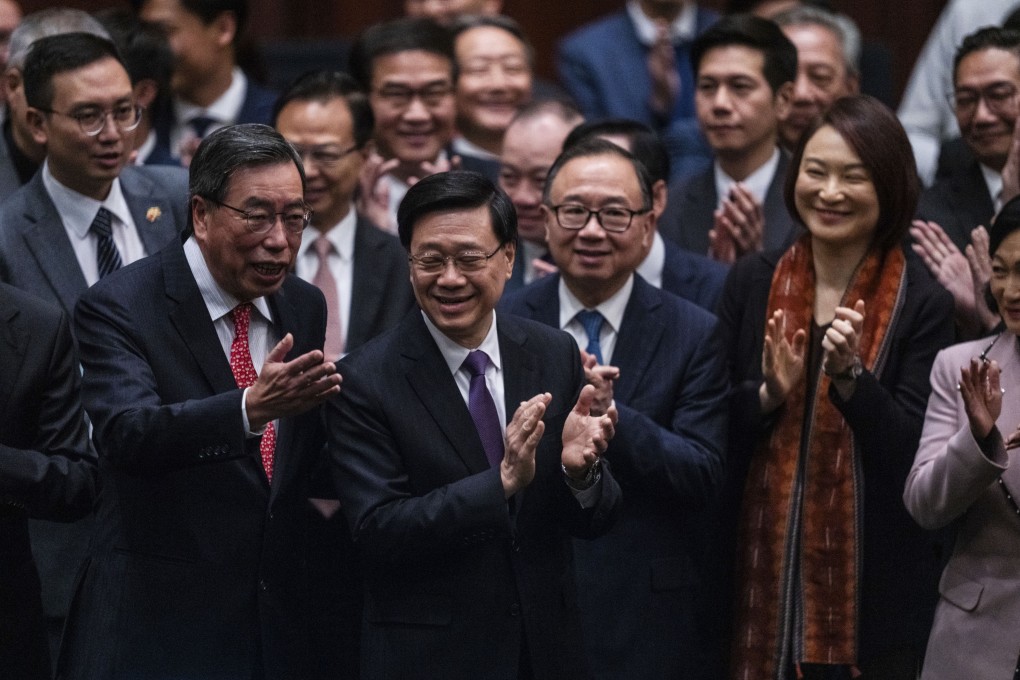Advertisement
Opinion | Article 23: after the victory lap, what’s next for Hong Kong?
- In passing Hong Kong’s domestic national security law, John Lee has pulled off a historic feat which none of his predecessors were able to accomplish
- But, much explanation and clarification are needed to assuage concerns. Now, the campaign to tell the real story about the legislation begins
Reading Time:4 minutes
Why you can trust SCMP
19

Article 23 of the Basic Law, a law made by China’s National People’s Congress which sets out the constitutional arrangements for Hong Kong, requires the Hong Kong Special Administrative Region to enact laws on its own to prohibit seven offences which threaten national security.
Advertisement
Despite the best intentions of the officials in charge, the first campaign to implement Article 23 ended in mass protests in mid-2003, and the national security bill was aborted after the Liberal Party, which held eight votes in the Legislative Council then, withdrew its support. The bill lapsed at the end of the first term of Tung Chee-hwa’s administration.
National security legislation became a political taboo that successive chief executives were reluctant to touch.
To avoid controversy and get on the right side of the then powerful “pro-democracy” bloc in Legco, Donald Tsang Yam-kuen, who succeeded Tung in 2005, prioritised democratic reform instead of national security.
He succeeded in securing legislative approval for a constitutional reform package in 2010. The reform created five “super seats” in the legislature, in effect five at-large constituencies spanning the city.
Advertisement
Tsang was replaced by Leung Chun-ying, an avowed patriot, in 2012. Shortly after Leung took over, his agenda was thrown off course by popular protests against the government’s plan to implement national education in schools.

Advertisement
